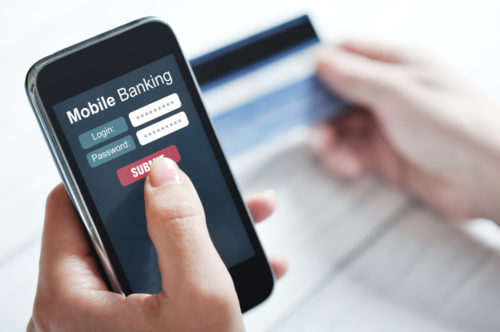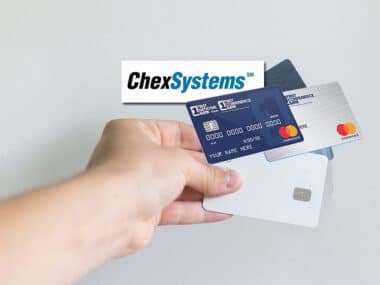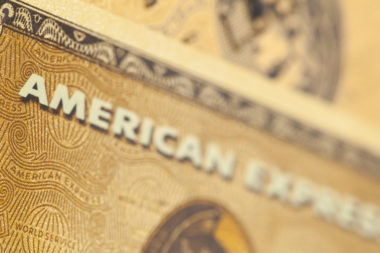Thanks to our mobile devices, we’re constantly connected to a wealth of information. From the latest news stories to what our friends are doing on social media, there isn’t much you can’t do with the help of a smartphone. Technology has changed the way we do personal finance by letting you access your bank account from just about anywhere.
Mobile banking offers you a safe and easy way to access your bank account. Banking apps make it possible to use a smartphone or other cellular device to execute most of the same tasks you would normally do online using your bank’s web platform. With the help of a mobile device, everyone from small business owners to college students can transfer money, deposit checks, and dispute charges from almost anywhere.
While mobile banking allows you to do things like move funds from one account to another and report fraud, you can’t do everything through a mobile banking app. You still need to take care of some tasks in person at a bank or even online through your bank’s web portal. Therefore, it’s important to understand the difference between online banking and mobile banking.
Here, we’ll explain the differences between the two, as well as provide more information on the benefits of mobile banking, why mobile banking is important, and the precautions banks take to keep your information safe.
Table of Contents
Mobile Banking Technology
Many people wonder about the security of mobile banking. Cybersecurity attacks are all-too-common, but banking institutions are aware of these attacks and they take precautions to make mobile banking safe, protect your information, and prevent damage or theft. The following features make mobile banking possible.
Wireless Application Protocol
A wireless application protocol (WAP) specifies how wireless devices communicate with and access the internet. Apps that use WAP protect the information transmitted between the device and the app itself. This is especially vital when personal information like bank account numbers and Social Security numbers are being used to access mobile banking.
Standalone Mobile Application
A standalone mobile application is installed on a mobile device and does not require consistent connectivity to a network in order to process data. In other words, the app is only transmitting information when it is being used. This is important for mobile banking as it ensures your information isn’t easily accessible at any time — only when you’re utilizing the application.
Why Is Mobile Banking Important?
In addition to making your life a little simpler, mobile banking offers users a wealth of benefits, including:
- Save time: Not every transaction requires a trip to the bank. Now, you can move money around with ease using your bank’s mobile app.
- Bank on the go: From paying bills to transferring funds, depositing checks, and disputing charges, you can handle a majority of your banking needs through your bank’s mobile application.
- Consider the environment: Mobile banking allows you to cut back on paper waste that traditional banking creates with paper statements and receipts.
- Constant control: No matter where you are, as long as there’s an internet connection you have access to and control of your funds.
How Is Mobile Banking Different From Online Banking?
Although mobile banking and online banking work together and offer a lot of the same services, there are a few key differences between the two. For instance, mobile banking uses a short message service or app so that you can access your bank account, while online banking requires you to log into your financial institution’s online portal.
Additionally, online banking allows you to make banking transactions over the internet with a PC or Mac, while mobile banking is a service that enables you to perform banking transactions with a cell phone.
To do any kind of mobile banking, a mobile device like a cell phone or tablet is required. To conduct online banking, you need a computer and access to the internet. Finally, the number of transactions you make via mobile banking may be limited, while the number of transactions made through online banking is virtually limitless.
How Safe Is Mobile Banking?
You’re probably wondering just how safe mobile banking is. The status of your finances is important. Whether you’re new to banking or you own a small business, you want to protect your money.
Many people have apprehensions around the security risks that mobile banking presents. It’s natural to worry about your information being hacked or stolen when using a mobile app, but banks recognize the value mobile banking offers their customers and have put many safety systems into place to protect you from dangers such as:
- Data breaches.
- Malware.
- Remote deposit fraud.
- Unsecure wi-fi networks.
Security Risk of Mobile Banking
Cybersecurity is a vital part of mobile banking. Banks take a multitude of security measures to keep your information private and prevent your data from being misused. By requiring a strong password and secure connection, banks protect their mobile application users from bad actors hacking into an account, or attacks that duplicate a person’s personal information.
Just like any digital transaction, there will always be security risks associated with mobile banking. However, banks work hard to ensure cybersecurity, and keeping your phone’s operating system and security software up to date will help ensure your information remains safe.
Image Source: https://depositphotos.com/





